In certain circumstances, an individual might need to submit a declaration of domicile. This statement serves as evidence that the person resides at the claimed address. A court, educational institution, or any other organization may require such a residency confirmation document. Additionally, these affidavits can be used to verify that a deceased person lived at a specific location. In such instances, the deceased’s heir will need to furnish a domicile affidavit as proof.
Table of Contents
What is an affidavit of residence?

An affidavit of residence is a legal document used to verify a person’s living address. This sworn statement is typically signed by the person making the claim and notarized by a public notary to ensure its authenticity. The affidavit may be required by various entities, such as courts, educational institutions, or government agencies, for various purposes like school enrollment, voter registration, or legal proceedings. The document generally includes the affiant’s (the person making the affidavit) name, address, and a statement asserting that they reside at the mentioned address. In some cases, supporting documents like utility bills or lease agreements may be attached to further corroborate the claim.
Affidavit of Residence Templates
An Affidavit of Residence is a legal document used to declare and affirm an individual’s place of residence. It is often required for various purposes such as school enrollment, immigration processes, or government-related matters. The Affidavit of Residence Template provides a standardized format for creating this document.
It’s important to note that the specific requirements and format of an Affidavit of Residence may vary depending on the jurisdiction and purpose for which it is being used. It is essential to consult the relevant authorities or legal professionals to ensure that the affidavit meets the necessary criteria and adheres to any specific guidelines or regulations.
Affidavit of Residence Templates can be created using word processing software or online document creation platforms. They provide a convenient and consistent format for individuals to declare their residence in a legally recognized and formal manner. By using an Affidavit of Residence Template, individuals can provide accurate and reliable information about their place of residence, supporting various legal and administrative processes.
Who needs an Affidavit of Residence?
An affidavit of residence may be required by or for different individuals in various situations. Some common instances where an affidavit of residence might be needed include:
Parents or guardians: For enrolling their children in a specific school district or educational institution, proving they live within the designated boundaries.
Individuals involved in legal proceedings: To establish their residential address as part of the court proceedings or for certain legal requirements, such as divorce or child custody cases.
Voters: To register to vote or to update their voting registration information, proving they reside within the appropriate voting district.
Tenants or homeowners: To verify their residency for obtaining local permits, licenses, or other government services.
Executors or beneficiaries: To prove the residency of a deceased person for estate or probate matters, such as transferring property or settling debts.
College or university students: To establish in-state residency for tuition purposes or to apply for financial aid.
These are just a few examples of situations where an affidavit of residence may be needed. The specific requirements and eligibility for using an affidavit of residence may vary depending on the jurisdiction and the purpose for which it is being used.
When is an affidavit of residency required?
An affidavit of residency is required when a person needs to provide legal proof of their living address for various purposes. Here are some common situations when an affidavit of residency might be necessary:
School enrollment: Parents or guardians may need to provide an affidavit of residency to prove they live within a school district’s boundaries for their child’s enrollment.
Voter registration: Individuals may need an affidavit of residency to register to vote or update their voter registration details to show they reside within the appropriate voting district.
Legal proceedings: During court cases, such as divorce or child custody disputes, an affidavit of residency may be required to establish a party’s living address.
Government services: Individuals might need to provide an affidavit of residency to obtain local permits, licenses, or other government services that require proof of residence.
Estate and probate matters: An affidavit of residency may be required to verify the domicile of a deceased person for estate or probate purposes, such as transferring property or settling debts.
College or university: Students might need an affidavit of residency to establish in-state residency for tuition purposes or to apply for financial aid.
Financial institutions: Banks or lending institutions may request an affidavit of residency to verify the borrower’s address for loan applications or other financial transactions.
Must-Have Terms on an Affidavit of Residency Form
An affidavit of residency is a legal document that attests to the place of residence of an individual. The specific terms that may appear on an affidavit of residency form can vary depending on the purpose of the affidavit and the requirements of the issuing authority, but some common terms that may be included are:
Affiant’s name and address: This refers to the person making the statement or affidavit, and their current residential address.
Date of Affidavit: The date the affidavit is signed and executed.
Purpose of Affidavit: A brief statement that explains the reason for the affidavit.
Statement of Residency: A statement declaring that the affiant is a current resident of the specified address, and how long they have lived there.
Identification: Information about the affiant’s identification, such as their driver’s license number, social security number, or other identification number.
Notarization: A section for the notary public or authorized officer to certify that the affiant’s signature was made in their presence.
Penalty of Perjury: A statement that the affiant swears under penalty of perjury that the information provided in the affidavit is true and correct.
Signature: A space for the affiant to sign and date the affidavit.
Witnesses: A section for witnesses to sign and date the affidavit, attesting to the authenticity of the signature of the affiant.
Can an affidavit be used as proof of residence?
Yes, an affidavit of residency can be used as proof of residence in certain circumstances. An affidavit is a sworn statement made under oath, and it attests to the affiant’s current place of residence. If the affidavit is notarized or certified by an authorized officer, it can be considered a legal document and can be used as evidence in court or other legal proceedings.
However, it’s important to note that whether or not an affidavit of residency will be accepted as proof of residence can depend on the specific requirements of the entity or organization that is requesting the proof of residency. Some entities may have specific guidelines or requirements for what qualifies as proof of residency, and an affidavit may not be sufficient on its own.
In addition to an affidavit of residency, some other common forms of proof of residence can include utility bills, bank statements, lease agreements, and government-issued identification documents such as a driver’s license or voter registration card. It’s always a good idea to check with the entity requesting the proof of residency to determine what forms of documentation they will accept.
How do you get a notarized Affidavit of Residency?
An Affidavit of Residency is a written statement that is used to confirm the residency of a person. To get an Affidavit of Residency notarized, follow these steps:
Prepare the Affidavit: Write out the Affidavit of Residency, including all the required information, such as the name of the person making the statement, the address being verified, the length of time the person has lived at the address, and a statement confirming the truthfulness of the information provided.
Visit a Notary Public: A Notary Public is an official who is authorized to witness the signing of important documents and to place a notary seal on the document, which serves as proof that the document was executed in their presence.
Sign the Affidavit: In front of the Notary Public, sign the Affidavit of Residency and provide identification, such as a driver’s license or passport, to verify your identity.
Have the Notary Public Notarize the Document: The Notary Public will then place their notary seal on the document, sign it, and fill out the necessary information on the seal, such as the date, location, and their commission number.
Keep a Copy: Make sure to keep a copy of the notarized Affidavit of Residency for your records.
How do you prove residency if you live with someone?
Proving residency can be a challenge when you live with someone else, but there are a few ways to do so. Here’s a comprehensive guide to proving residency:
Lease or rental agreement: The most straightforward way to prove residency is by providing a lease or rental agreement that lists you as a tenant at the address in question. This document should be signed by both you and the landlord and should include the dates of the tenancy.
Utility bills: Utility bills, such as electricity, gas, water, or internet, that are in your name and show the address in question can be used to prove residency. It’s important that the bills show your name and the current address, as well as the dates of service.
Bank statements: Bank statements that show your name and the address in question can be used to prove residency. It’s important that the statements show your name and the current address, as well as the dates of the transactions.
Government-issued ID: A government-issued ID, such as a driver’s license or passport, that lists the address in question can be used to prove residency. It’s important that the ID shows your name and the current address.
Affidavit of Residency: An Affidavit of Residency is a written statement from someone who knows you and can confirm that you live at the address in question. This document should be signed and notarized.
Correspondence from government agencies: Correspondence from government agencies, such as the Department of Motor Vehicles or the Internal Revenue Service, that shows the address in question can be used to prove residency. It’s important that the correspondence shows your name and the current address, as well as the dates of the correspondence.
Proof of mail delivery: Proof of mail delivery, such as canceled mail with your name and the address in question, can be used to prove residency. It’s important that the mail shows your name and the current address, as well as the dates of the delivery.
Affidavit of Residency vs. Affidavit of Domicile
An Affidavit of Residency and an Affidavit of Domicile are two different legal documents that serve different purposes.
An Affidavit of Residency is a written statement that confirms the current address of a person. It’s often used for purposes such as enrolling in school, voting, or obtaining a driver’s license. An Affidavit of Residency typically includes the person’s name, current address, length of time at the address, and a statement confirming the truthfulness of the information provided.
An Affidavit of Domicile, on the other hand, is a written statement that confirms a person’s legal residence, or domicile. It’s often used in estate planning or probate matters to establish where a person considered their permanent home to be. An Affidavit of Domicile typically includes the person’s name, permanent address, a statement confirming that the person considered the address to be their permanent home, and a statement confirming the truthfulness of the information provided.
In summary, an Affidavit of Residency confirms a person’s current address, while an Affidavit of Domicile confirms a person’s permanent legal residence. Both documents should be signed and notarized to be legally valid. It’s important to understand the difference between the two and to use the appropriate document for the specific purpose.
How to Write an Affidavit of Residency
An Affidavit of Residency is a written statement that confirms a person’s current address. Here’s a step-by-step guide on how to write an Affidavit of Residency:
Identify the purpose: Determine why you need to provide an Affidavit of Residency. This will help you understand what information needs to be included in the document.
Gather necessary information: Before you begin writing, gather all the necessary information, including your full name, current address, length of time at the address, and any other relevant details.
Write the introduction: Begin the Affidavit of Residency by writing the introduction. The introduction should include a statement that the person making the statement (the affiant) is of sound mind and is competent to make the statement.
State your name and address: In the next section, state your full name and current address, including the street address, city, state, and zip code.
Provide length of residency: In this section, provide the length of time that you have lived at the current address.
Make a statement of truthfulness: In the next section, make a statement that confirms the truthfulness of the information provided in the Affidavit of Residency. For example, you could write “I swear under penalty of perjury that the information provided in this Affidavit of Residency is true and correct to the best of my knowledge.”
Sign and date the Affidavit: After completing the Affidavit of Residency, sign and date the document. Make sure to sign the document in front of a Notary Public.
Notarize the Affidavit: A Notary Public is an official who is authorized to witness the signing of important documents and to place a notary seal on the document, which serves as proof that the document was executed in their presence. Have the Notary Public notarize the Affidavit of Residency by placing their seal and signature on the document.
Keep a copy: Make sure to keep a copy of the notarized Affidavit of Residency for your records.
FAQs
Who can sign an Affidavit of Residency?
An Affidavit of Residency can be signed by anyone who is competent to make the statement and has personal knowledge of the person’s current address.
How long is an Affidavit of Residency valid?
The validity of an Affidavit of Residency depends on the specific purpose and jurisdiction. In general, an Affidavit of Residency is considered valid as long as the information provided in the document remains accurate.
Can I use an Affidavit of Residency instead of a lease or rental agreement?
An Affidavit of Residency can be used in addition to a lease or rental agreement to confirm a person’s current address, but it cannot replace a lease or rental agreement. A lease or rental agreement is a legally binding contract between a landlord and tenant that outlines the terms of the tenancy, while an Affidavit of Residency is a written statement confirming a person’s current address.
Can I use an Affidavit of Residency for immigration purposes?
No, an Affidavit of Residency is not typically used for immigration purposes. For immigration matters, you may need to provide a different type of affidavit or other supporting documentation, such as a Form I-134 Affidavit of Support.
Can an Affidavit of Residency be used to prove citizenship?
No, an Affidavit of Residency cannot be used to prove citizenship. To prove citizenship, you may need to provide a birth certificate, passport, or other government-issued documentation that shows your citizenship.
How do I find a Notary Public to notarize my Affidavit of Residency?
A Notary Public can typically be found at banks, post offices, shipping stores, or government offices. You can also search online for Notary Public services in your area.
What happens if I provide false information in an Affidavit of Residency?
Providing false information in an Affidavit of Residency is a serious matter and can result in criminal penalties, such as fines or imprisonment. It’s important to provide accurate and truthful information in an Affidavit of Residency.
Can I use an Affidavit of Residency for legal purposes?
An Affidavit of Residency may be used for some legal purposes, but it depends on the specific circumstances and jurisdiction. It’s a good idea to consult with an attorney to determine if an Affidavit of Residency is appropriate for your situation.
What can happen if you fail to present an affidavit of residence?
Situation and the reason why an Affidavit of Residency is required. In general, failing to provide an Affidavit of Residency can result in the following consequences:
Denial of services: If an Affidavit of Residency is required for services such as enrolling in school or obtaining a driver’s license, failing to provide an Affidavit of Residency may result in the denial of those services.
Fines or penalties: In some cases, failing to provide an Affidavit of Residency may result in fines or penalties, such as late fees or increased taxes.
Legal consequences: If an Affidavit of Residency is required for legal purposes, such as in a court case, failing to provide an Affidavit of Residency may result in legal consequences, such as sanctions or even dismissal of the case.
Reputational harm: Failing to provide an Affidavit of Residency can also harm one’s reputation, particularly if the Affidavit of Residency is required for a professional or business purpose.


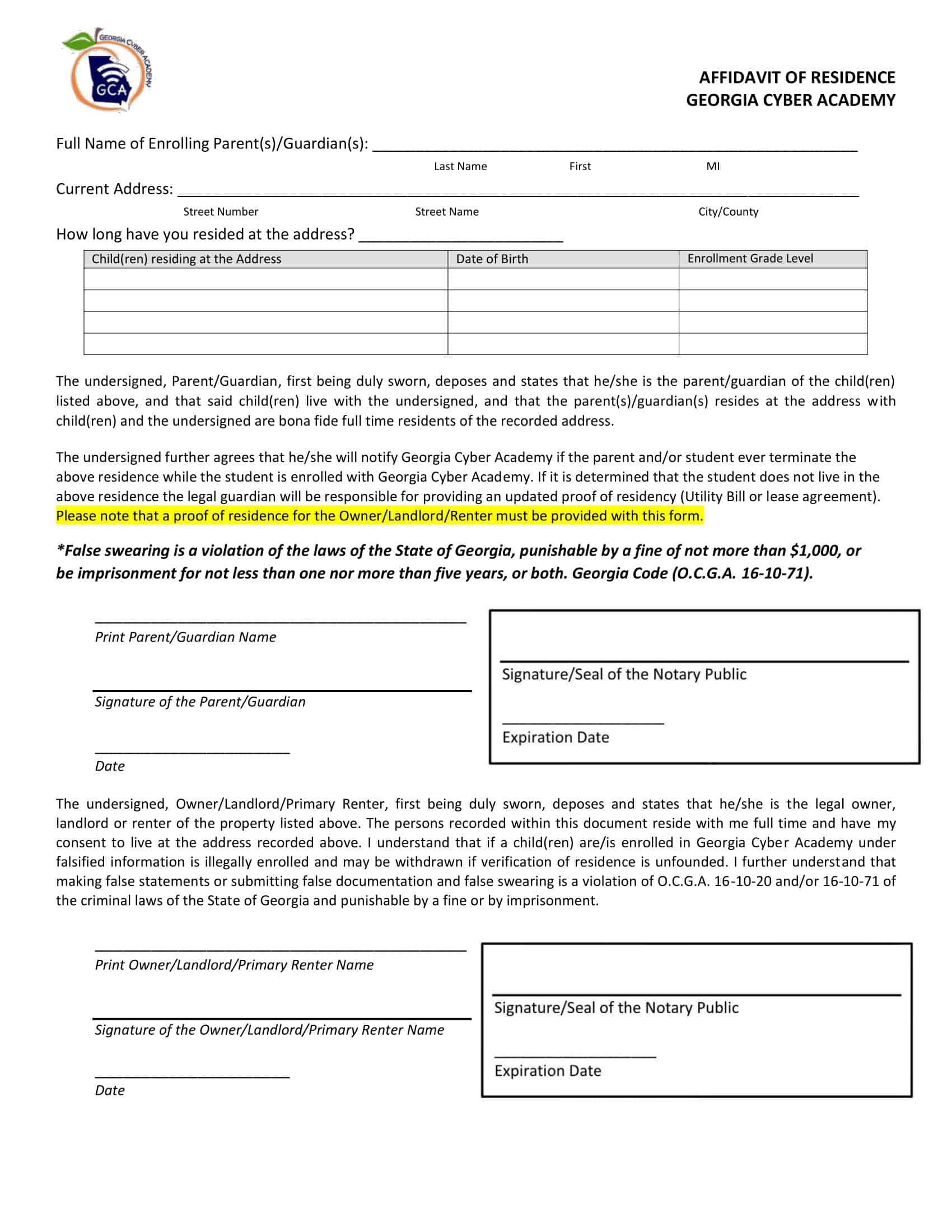











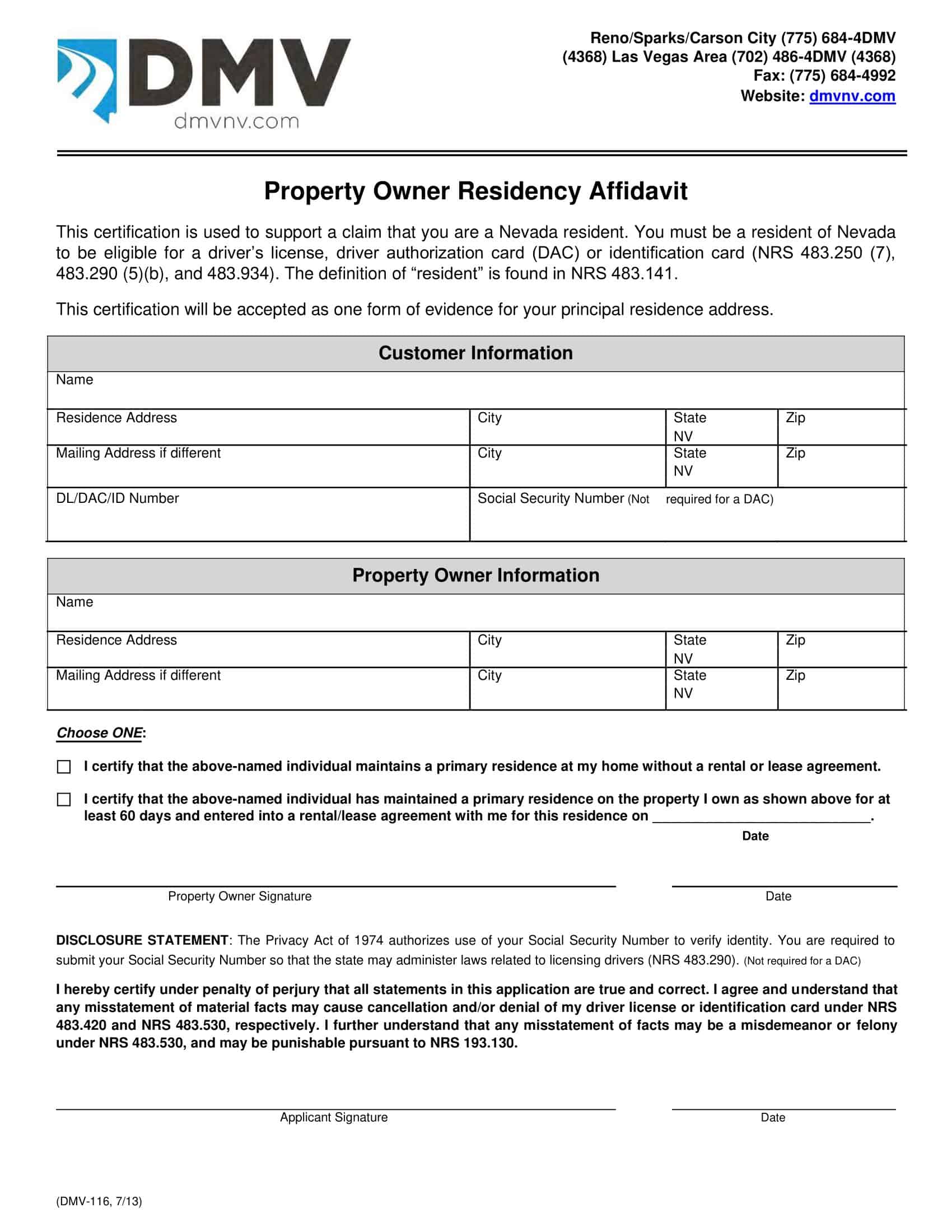


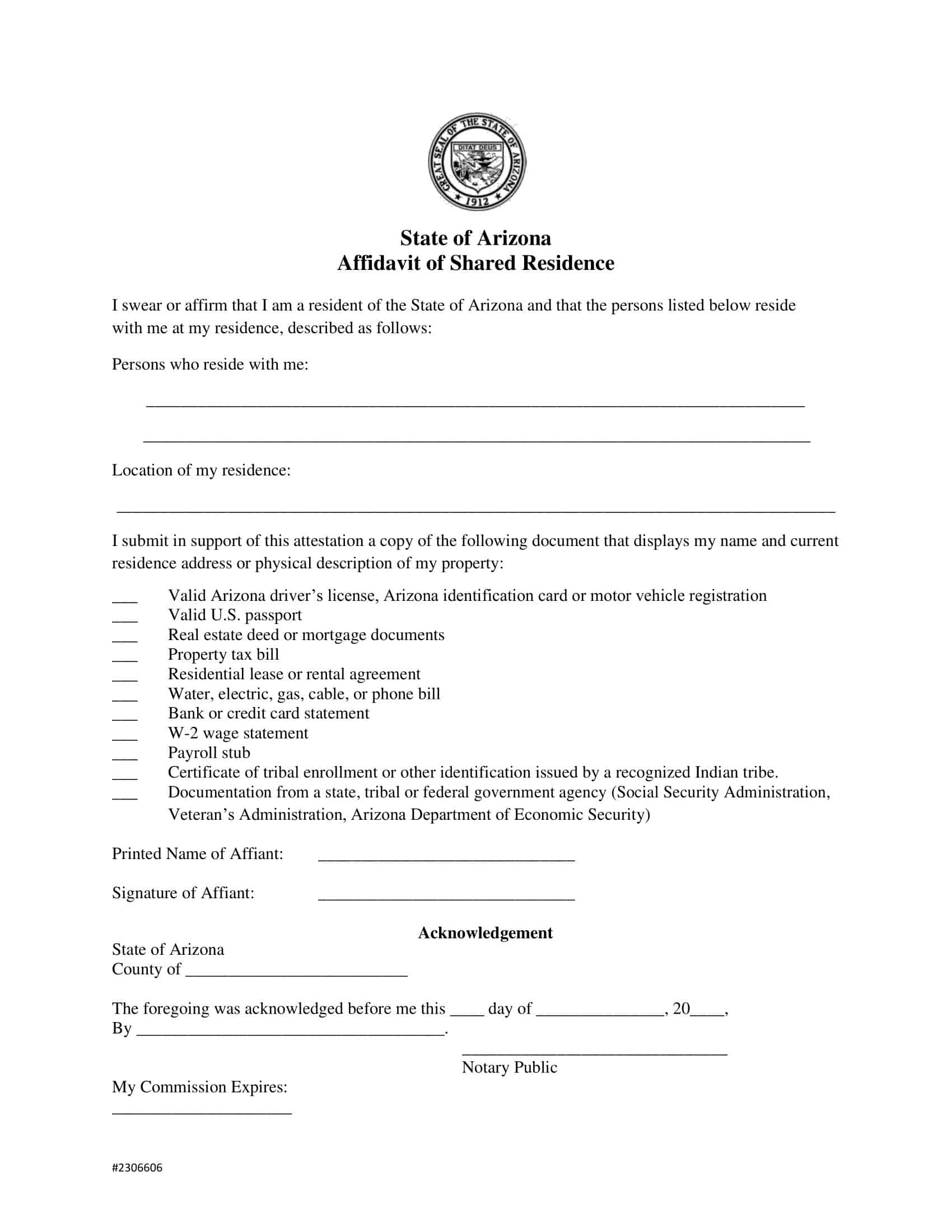







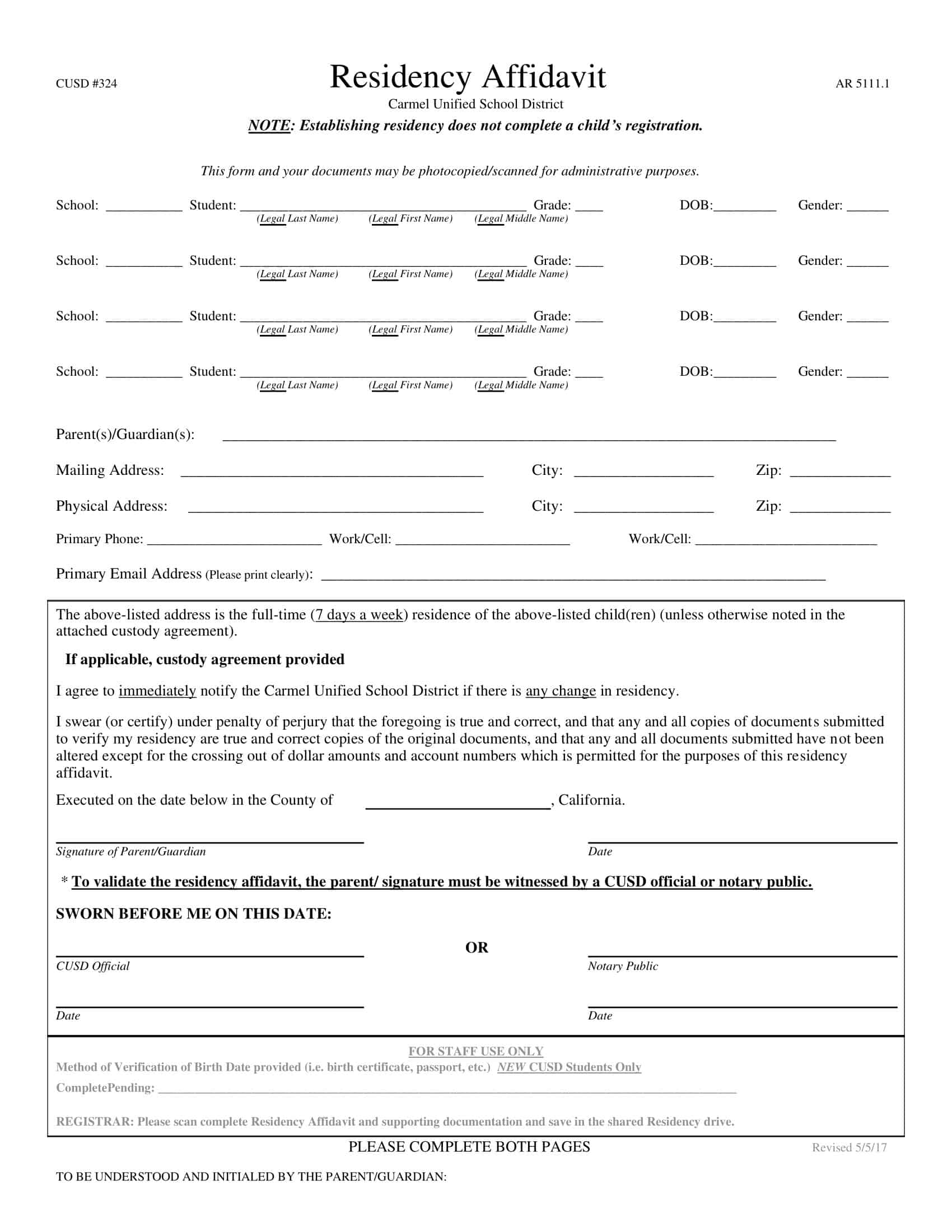
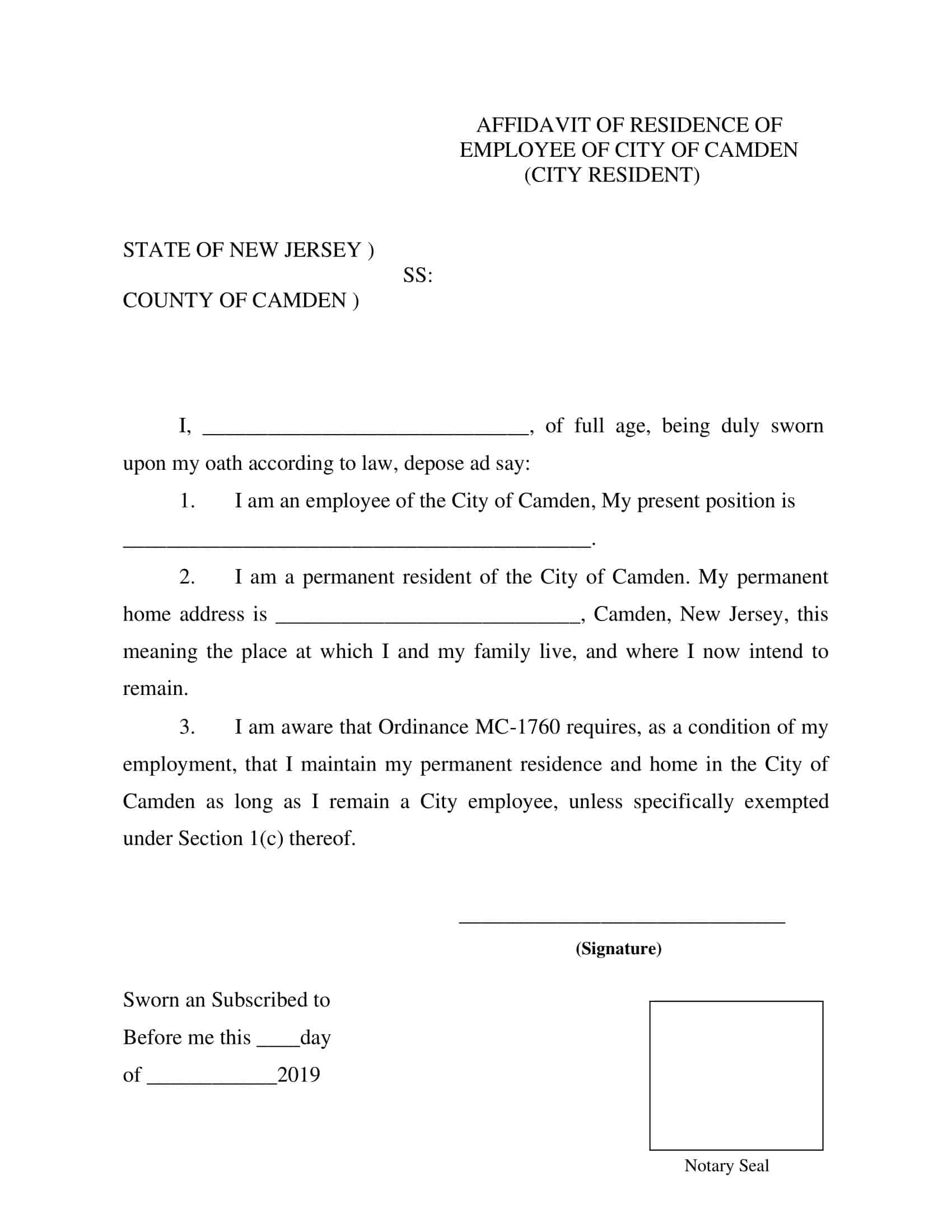



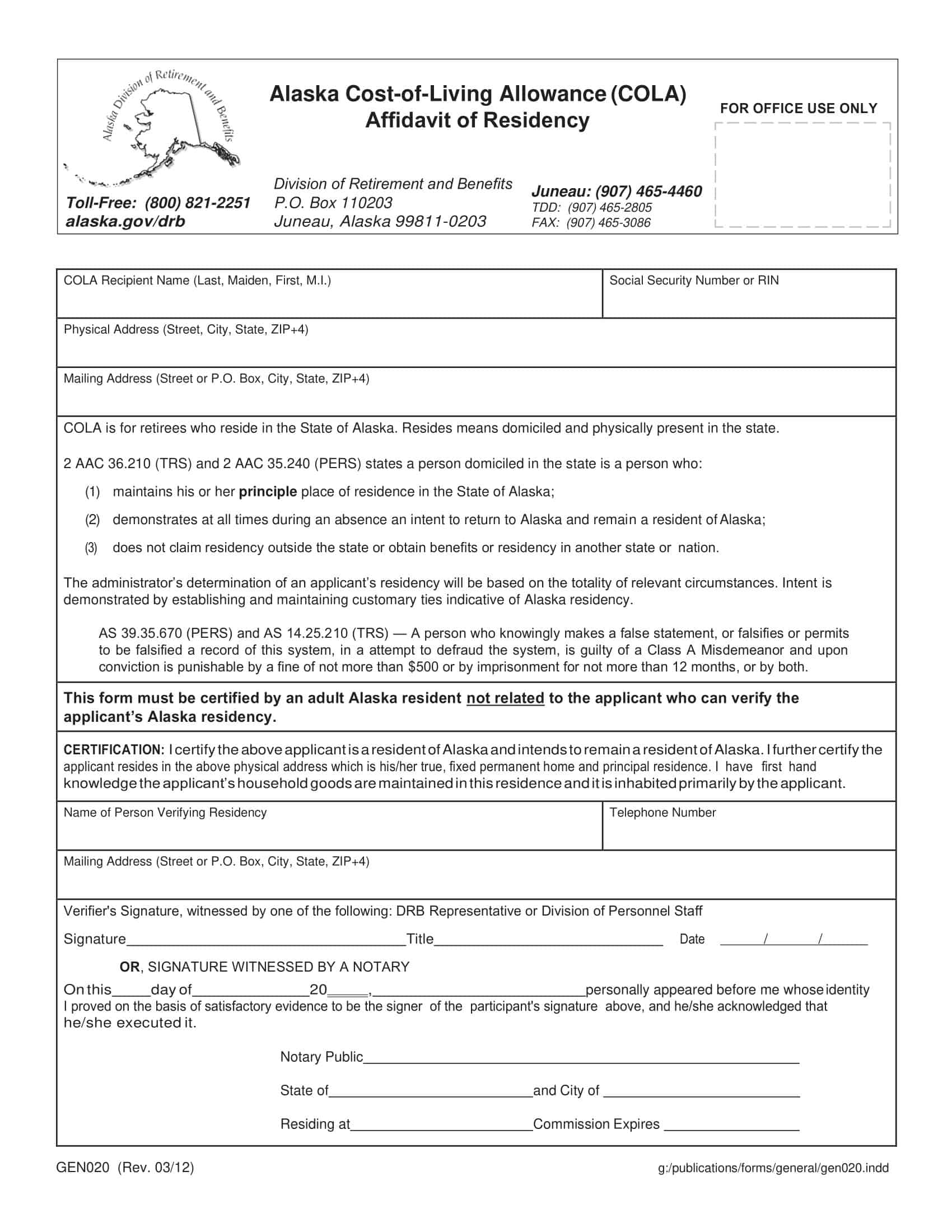


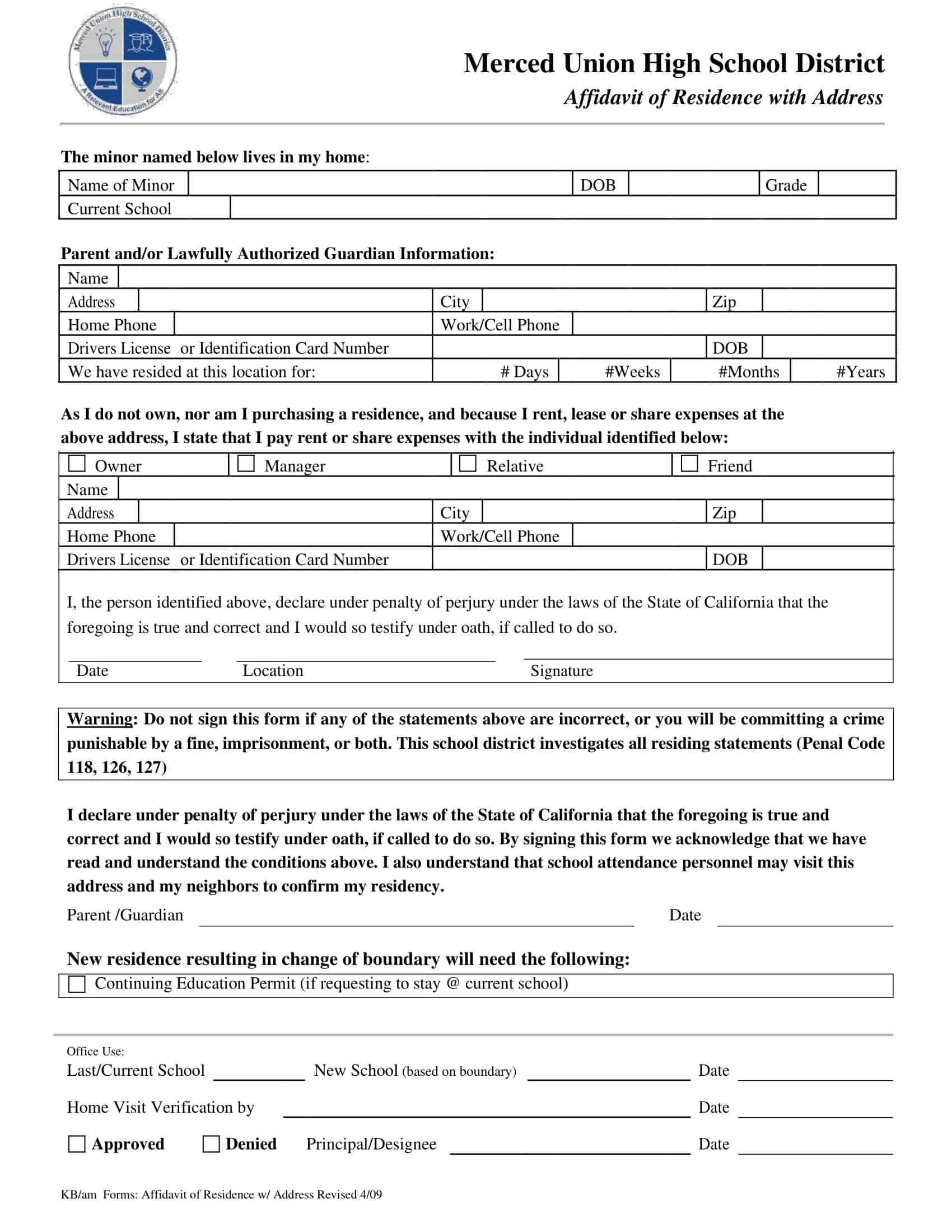
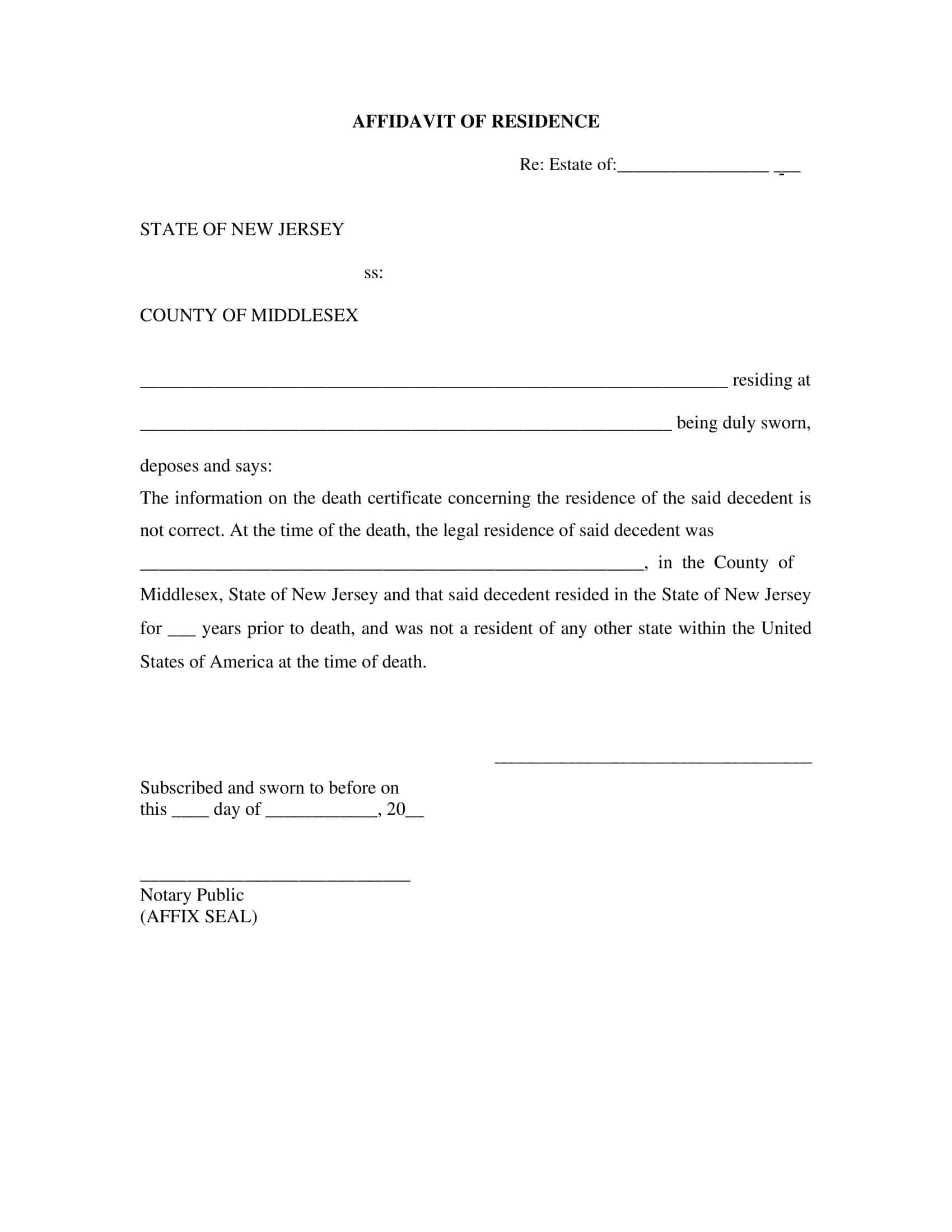




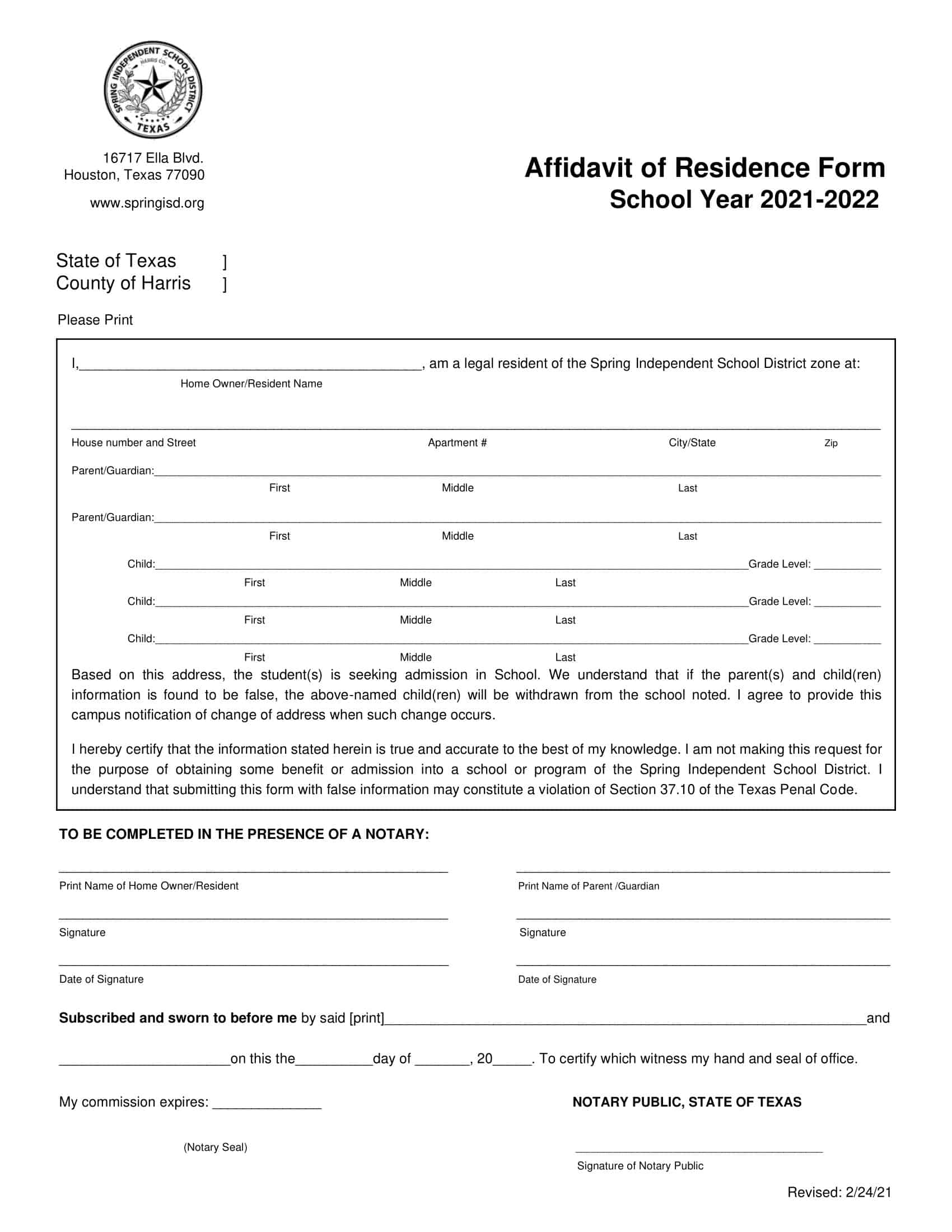
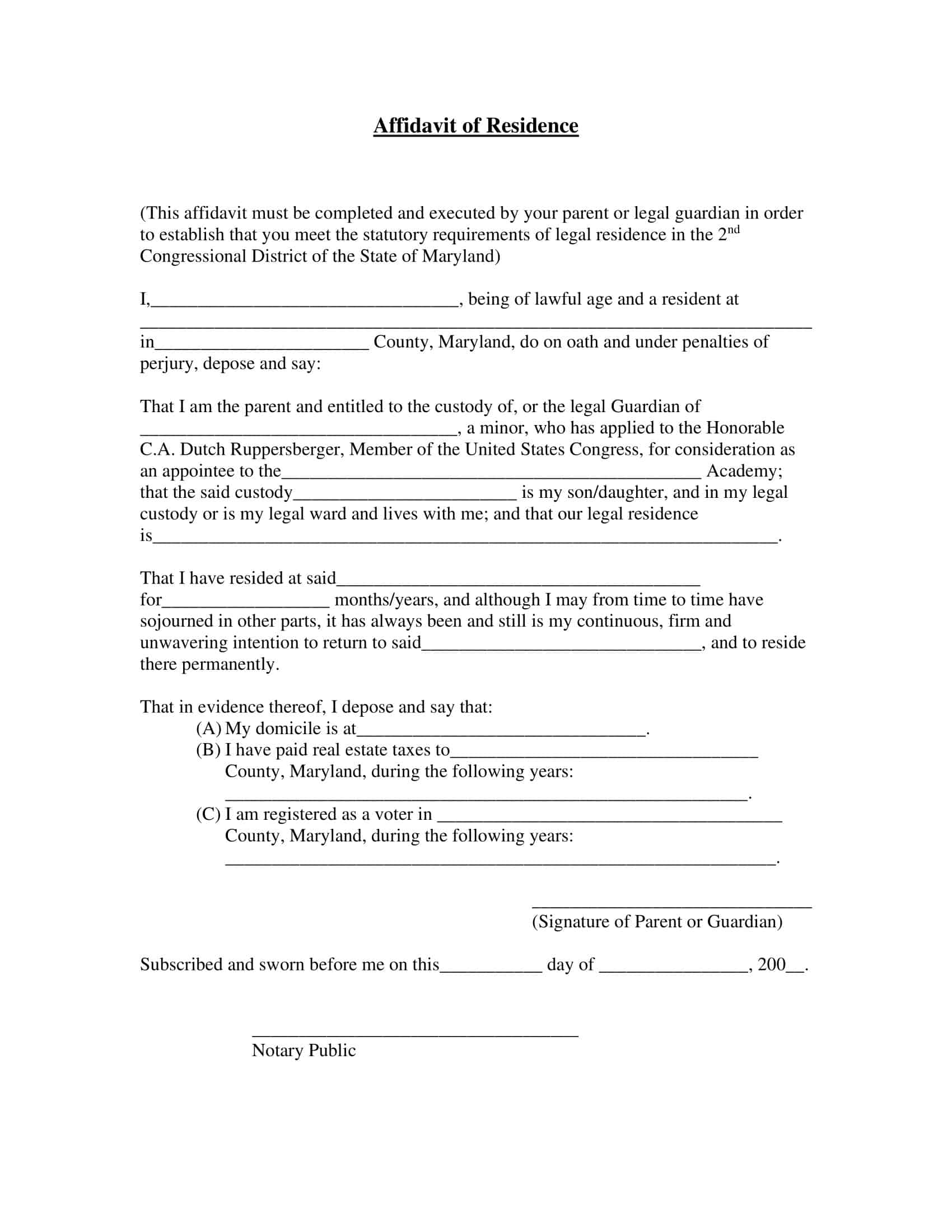







![Free Printable Roommate Agreement Templates [Word, PDF] 1 Roommate Agreement](https://www.typecalendar.com/wp-content/uploads/2023/06/Roommate-Agreement-150x150.jpg)
![Free Printable Credit Card Authorization Form Templates [PDF, Word, Excel] 2 Credit Card Authorization Form](https://www.typecalendar.com/wp-content/uploads/2023/06/Credit-Card-Authorization-Form-150x150.jpg)
![Free Printable Stock Ledger Templates [Excel,PDF, Word] 3 Stock Ledger](https://www.typecalendar.com/wp-content/uploads/2023/08/Stock-Ledger-150x150.jpg)
